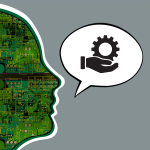Course 1 first explores the basics of both macroscopic and microscopic thermodynamics from a postulatory point of view. In this view, the meaning of temperature, thermodynamic pressure and chemical potential are especially clear and easy to understand. In addition , the development of the Fundamental Relation and its various transformations leads to a clear path to property … [Read more...] about Fundamentals of Macroscopic and Microscopic Thermodynamics
Physical Science and Engineering
Introduction to Materials Science
Periods of our civilization have names associated with materials – stone age, bronze age, iron age and the silicon age. Materials impact all aspects of your daily life and will continue to do so in the future. The more we understand materials, the more we imagine the future with fantastic devices and advancements enabled by materials. This initial specialization introduces a … [Read more...] about Introduction to Materials Science
Project Planning and Machine Learning
This course can also be taken for academic credit as ECEA 5386, part of CU Boulder’s Master of Science in Electrical Engineering degree. This is part 2 of the specialization. In this course students will learn : * How to staff, plan and execute a project * How to build a bill of materials for a product * How to calibrate sensors and validate sensor measurements * How hard … [Read more...] about Project Planning and Machine Learning
Communication as a Technical Leader
An engineering leader spends a majority of their day interacting with others. Indeed, studies repeatedly point to the impact communication skills have on the ability of managerial leaders to succeed or fail. Too often, individuals move into managerial leadership roles without an awareness of the need to improve in this area. This course focuses on interpersonal skills such as … [Read more...] about Communication as a Technical Leader
Differential Equations Part III Systems of Equations
This introductory courses on (Ordinary) Differential Equations are mainly for the people, who need differential equations mostly for the practical use in their own fields. So we try to provide basic terminologies, concepts, and methods of solving various types of differential equations as well as a rudimentary but indispensable knowledge of the underlying theory and some … [Read more...] about Differential Equations Part III Systems of Equations






